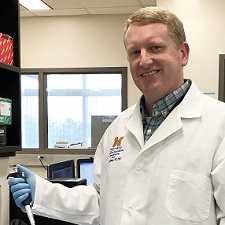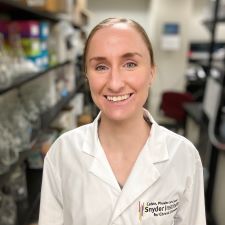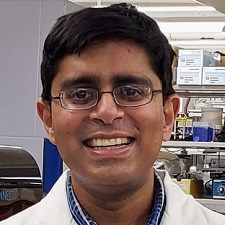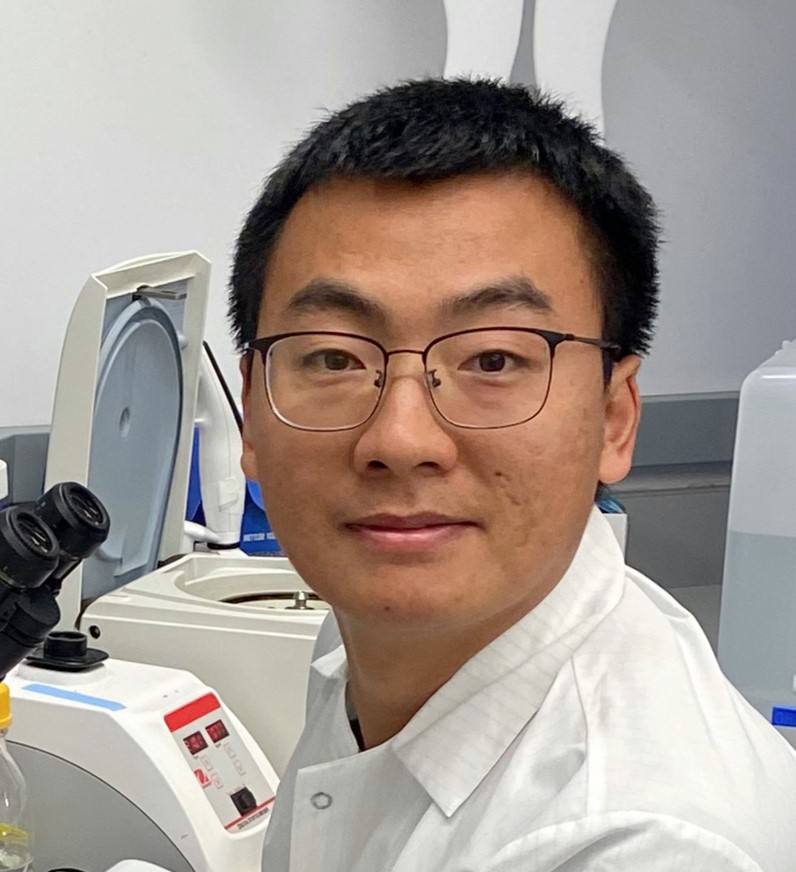Although immunotherapy results in improved survival for some patients with advanced bladder cancer, most tumors do not respond, and the molecular drivers of this resistance to immunotherapy are poorly understood. Dr. Palmbos' goal is to use advanced bladder cancer models and patient data to identify the molecular drivers of resistance to bladder cancer therapy and to develop therapeutic strategies to reverse therapy resistance. His group has identified a gene, TRIM29, which is expressed in 70% of bladder cancers and is associated with immunotherapy resistance. TRIM29 is a protein that promotes degradation of STING and other innate immune proteins that drive anti-tumor immune response. He is currently investigating the regulation of the TRIM29-STING pathway and developing strategies to sensitize bladder and other cancer types to immunotherapy.
Other Cancers
Current Projects

Histologic transformation, when a cancer’s features shift dramatically and it presents as a new cancer type, can occur at any point in the course of disease or arise due to the selective pressure of cancer therapies. One of the most well-recognized examples of histologic transformation is the transformation of follicular lymphoma, a slow-growing cancer of the lymphocytes, to an aggressive lymphoma, typically a large B-cell lymphoma. Despite this being well-recognized in the clinic, understanding of the molecular changes that trigger this transformation remains limited. Dr. Parry seeks to comprehensively study the genetics underlying follicular lymphoma transformation with a goal of improving future recognition and diagnosis of transformation. She also aims to identify unique potential therapeutic targets associated with follicular lymphoma transformation.
The exploration of human tumors in their native environment is challenging, precluding a deeper understanding of how cancer and important therapeutics work. Dr. Puleston [Bakewell Foundation Innovator] is developing new ways to investigate human cancer by keeping tumor-bearing organs alive outside of the body, allowing for the experimental study of tumors within human tissues. Employing this approach to study hepatocellular carcinoma (HCC), one of the most lethal forms of liver cancer, Dr. Puleston will expose HCC-laden livers to immunotherapy drugs and metabolic tracers to reveal the metabolic landscape of HCC cancers and how tumor metabolism is shaped following drug treatment. Through the study of tumors and anti-cancer agents in situ, Dr. Puleston hopes to elucidate new pathways with therapeutic potential and novel strategies to optimize existing therapeutics.

Neutrophils are important anti-microbial cells within the innate immune system. Recently, it has been shown that neutrophils can perform diverse functions, taking on both pro-inflammatory and pro-healing roles in response to tissue injury or insult. Dr. Siwicki's [Dale F. and Betty Ann Frey Fellow] goal is to understand how different neutrophil subtypes or states function to balance inflammatory versus regenerative processes, ultimately influencing tissue health and cancer. This work has the potential to uncover the basis of neutrophils' pro-tumor versus anti-tumor functions and could open the door to therapeutic targeting of specific neutrophil behaviors in order to improve clinical outcomes in cancer. Dr. Siwicki received her PhD from Harvard Medical School, Boston and ScB from Brown University, Providence.

Epidemiologic studies have revealed that many cancer types display differences in incidence or outcomes between the sexes. In most cases, these differences are only partially explained by non-genetic factors such as hormonal differences, carcinogen exposure, lifestyle, and access to health care. Our understanding of how genetic factors contribute to differences in cancer incidence between the sexes remains incomplete. A fundamental genetic difference between the sexes is in chromosome composition. Relative to male somatic cells, female somatic cells have an extra X chromosome. Most genes on the second copy of chromosome X in females are inactivated via a process known as X-chromosome inactivation, which approximately equalizes the dosage of X-linked genes between males and females. Dr. Viswanathan's project tests the hypothesis that genetic alterations to the X chromosome in cancer may perturb this carefully regulated process and thereby contribute to differences in cancer incidence or pathogenic mechanisms between males and females.

Dr. Zhang [Timmerman Traverse Fellow] aims to engineer T cells with synthetic cell adhesion molecules (synCAMs) to augment current approaches for immunotherapy. This project represents a fundamentally new strategy for CAR T cell engineering that could overcome tumor escape from immunotherapy across multiple forms of cancer. Understanding how synCAMs contribute to CAR T cell efficacy will provide insights beyond cytotoxic CAR T cell therapy; this work could lead to the application of synCAMs in other engineered immune cell therapies under investigation, such as CAR macrophages, CAR natural killer cells, and CAR T regulatory cells. Overall, this approach could lead to CAR T cells that are much more robust to tumor evasion and target antigen expression, and thus much more effective therapeutically. Dr. Zhang received his PhD from University of Chinese Academy of Sciences, Shanghai and his BS from Wuhan University, Wuhan.







